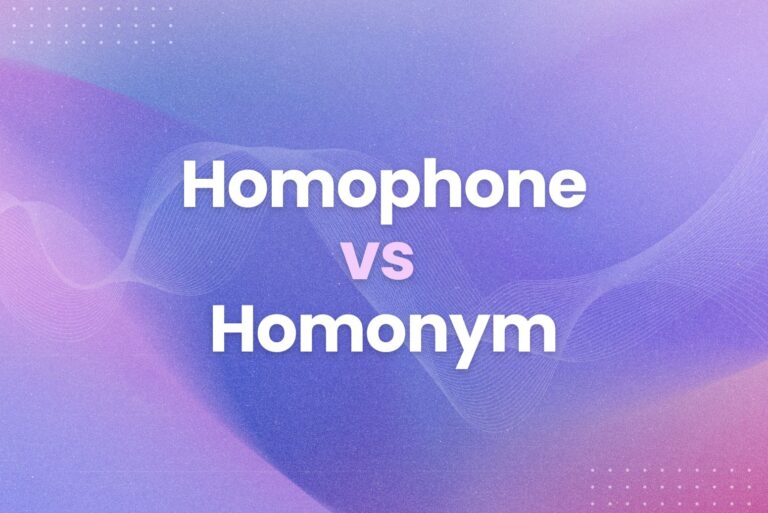Less vs Fewer: A Quick and Easy Explanation
Ever get confused between less vs fewer? Don’t worry, we all have. “Less” and “fewer” are sneaky words that trip us up. But fear not, grammar guru. This quick and easy guide will have you using these words like a pro in no time.
Here’s what we’ll cover:
- The simple difference between “less” and “fewer”
- Common mistakes (and how to fix them)
- Some exceptions
- Why it matters
Let’s get started.
“Less” vs. “Fewer”: What’s the Big Deal?
You know those little grammar rules that seem kinda picky? Well, the “less” vs. “fewer” debate is one of those. But trust me, it’s actually about being clear and precise with your language.
Here’s the short version:
- “Fewer” is for things you can count. Apples, dollars, people. You can have fewer apples than your friend.
- “Less” is for things you can’t count. Water, time, money (as a general concept). You can have less water in your glass.
Easy. But why does it matter? Using the right word shows you know your stuff. And it avoids confusion. Makes your writing (or talking) clearer.
Imagine you’re at the grocery store, and you see a sign that says “10 items or less.” Technically, it should be “10 items or fewer” since you can count items, right? Small errors like this might make people wonder, “Hmm… if they can’t get that right, what else are they getting wrong?” Maybe not the impression you want to make.
And hey, if you ever find yourself questioning your grammar, Arvin, the AI-powered browser extension, can be your trusty grammar checker. It’s like having a personal editor right there in your browser.

“Less” vs. “Fewer” Blunders: Don’t Make These Mistakes
Even though the “less” vs. “fewer” rule is pretty simple, it’s easy to slip up. Here are some of the most common mistakes people make (and how you can avoid them like the plague):
- Using “less” with countable nouns. This is the big one. You wouldn’t say “less books,” would you? Nope. It’s “fewer books.” Same goes for things like “items,” “people,” or “opportunities.”
- Using “fewer” with uncountable nouns. Just as you can’t have “less books,” you also can’t have “fewer time” or “fewer money” (when talking about money as a general concept). Stick with “less” for those uncountable things.
- Getting tricked by tricky nouns. Some nouns can be both countable and uncountable, depending on how they’re used. For example, you can have “less hair” (in general) but “fewer hairs” (on your shirt).
When in doubt, try the “count ’em up” test. Can you count the thing you’re talking about? If so, use “fewer.” If not, use “less.”
And remember, if you ever need a quick grammar check, Arvin is your friend. This AI-powered browser extension can help you catch those pesky “less” vs. “fewer” errors (and a whole lot more).
Some Exceptions to Keep in Mind
Of course, no grammar rule is without its rebels. Here are a few common exceptions where the usual “less” vs. “fewer” guidelines don’t quite apply:
Time and Money
Things get a bit tricky with time and money.
- The words themselves are uncountable: You have less time and less money.
- But, we can split them into countable units: dollars, cents, minutes, hours, etc.
Even though we can count these units, we still often use “less” with them. For example, “He spent less than two dollars” or “It happened less than two years ago.”
Sometimes, “fewer” can be used with time, especially when talking about very specific timeframes. Like, “The Prime Minister resigned after fewer than seven weeks in office.”
Weight and Measurements
Similar to time and money, weights and measurements can also be split into countable units (grams, pounds, miles, etc.). But here’s the catch: we always use “less” with them, never “fewer.”
So, you’d say, “Add less than 200g of flour” or “Turn right in less than 30 yards.”
Percentages
Percentages are a whole other beast. A percentage itself is a single quantity (uncountable), but it depends on what it’s referring to.
- If the percentage refers to something countable, use “fewer”: “Fewer than 50% of all cats in the US are pets.”
- If the percentage refers to something uncountable, use “less”: “Stressed cows produce 30-50% less milk.”
See? I told you there were exceptions. But don’t worry, with a little practice (and maybe some help from Arvin), you’ll be handling these tricky situations like a grammar pro.
Why Does This “Less” vs. “Fewer” Thing Even Matter?
Maybe messing up “less” and “fewer” won’t cause the world to implode. However, using these words correctly actually does matter. Here’s why:
- Clarity is King: Using the right word ensures your message is crystal clear. You wouldn’t want someone to misunderstand you because you used “less” when you should have used “fewer,” right?
- Credibility Counts: Good grammar makes you look good. Whether you’re writing an email, a report, or just chatting with a friend, using “less” and “fewer” correctly shows that you pay attention to detail and have a good grasp of the English language.
- Confidence Booster: When you know you’re using language correctly, you feel more confident in your communication. And that confidence can shine through in all sorts of situations, from job interviews to presentations.
Proper grammar is like dressing well for an important occasion. You might not get thrown out for wearing jeans to a fancy dinner party, but you’ll probably make a better impression in a suit.

Become a “Less” vs. “Fewer” Pro with Arvin
Now, you know how to use the “less” vs. “fewer” properly. With this newfound knowledge, you’ll be writing and speaking with clarity and confidence in no time.
Just remember these key takeaways:
- “Fewer” is for countable things, “less” is for the rest.
- Watch out for those tricky exceptions (time, money, measurements, percentages).
- Don’t be afraid to use the “count ’em up” test when in doubt.
And if you ever need a little backup, remember that Arvin is always there to lend a helping hand (or, should we say, a helping algorithm?). With Arvin’s grammar-checking capabilities, you can write with confidence, knowing that your “less” and “fewer” will always be on point. Plus, Arvin can help you with a whole lot more, from writing and research to image generation and translation.
FAQs
“Fewer” is used with countable nouns (things you can count), while “less” is used with uncountable nouns (things you can’t count). It’s “fewer apples” but “less water.”
It depends on what the percentage refers to. If it’s referring to something countable, use “fewer.” If it’s referring to something uncountable, use “less.” For example, “Fewer than 20% of people attended the meeting” but “20% less milk in the carton.”
It’s “less money.” Even though we can count money in units (dollars, cents, etc.), we usually consider it an uncountable concept.
It’s “fewer people.” People are definitely countable.





